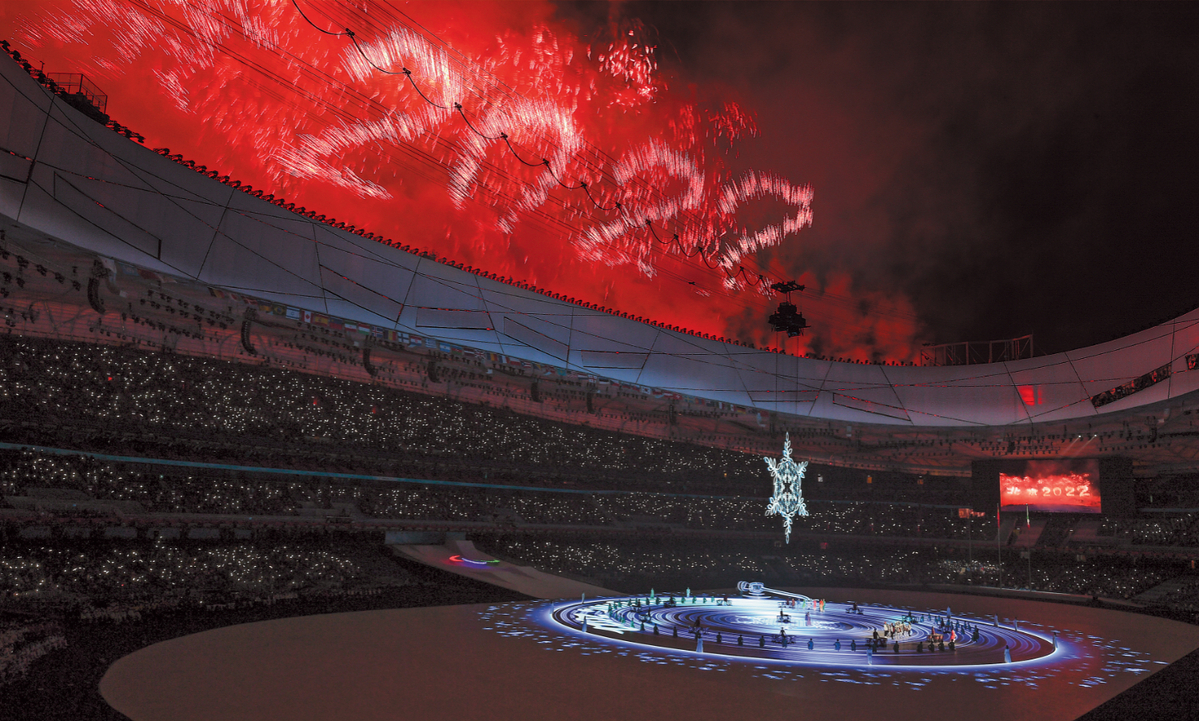Beyond Paralympics: Building an accessible society for all
By Guo Zhiwei | chinadaily.com.cn | Updated: 2022-03-15 15:36

The 2022 Winter Paralympics, after 10 days and 78 events, officially came to an end Sunday night at Beijing National Stadium. One legacy greater than the stunning total of 61 medals won by China – 18 golds, 20 silvers, and 23 bronzes – is the seed of an accessible society in all respects for people living with disabilities.
Efforts to build a barrier-free environment for both the Paralympics athletes and spectators date back to 2016, when the Beijing 2022 Organizing Committee started working on the first draft of The Guide to Barrier-Free Services, just one year after the capital of China was selected as the host city. In 2018, The Guide was released, upholding the basic principles of "fairness, dignity, and suitability".
In 2020, Beijing Institute of Architectural Design issued illustrative, specific instructions to build accessible competition venues, stadiums, Paralympics-related public spaces, and other facilities. By the end of 2021, with nearly 150,000 spots upgraded, key areas for the Games in Beijing were declared barrier-free, according to Beijing Daily.
Eventually, inclusivity, care, and respect for people with disabilities were woven into every little detail of the Games. At Beijing National Aquatics Center, a Z-shaped accessible lane, which was 80 meters long and 2 meters wide, made its way to the ice rink; accessible seats were set up for spectators with disabilities and their companions; extra-wide temperature measuring doors were friendly to wheelchair users. In the Paralympics villages, LED lights and curtains could be controlled via smartphones; athletes could handle L-shaped doorknobs in both sitting and standing positions; toilets and shower rooms were equipped with grab bars. Also, volunteers would offer help only when it was requested.
The accessible facilities were highly praised by our international friends. IPC accessibility specialist Ileana Rodriguez said Beijing has set a high bar on accessibility for future Paralympics. American Paralympic ice hockey athlete Kyle Zych told Xinhua News Agency he felt "so lucky to experience such an amazing village and venue". Netherlands coach Nicky Elsewaerd commented that the facilities here were the best of the last three games.
Liu Xinghua, head of the committee's legacy office, says the Games and its preparation have left a profound legacy, providing a new beginning to build a more inclusive society where people with disabilities can enjoy a richer life.
Currently, in China, approximately 85 million people are living with disabilities, according to the China Disabled Persons' Federation. The total number is estimated to reach 100 million in 2030.
Steady progress has been made to ensure the full and equal participation of people with disabilities in Chinese society, especially after the reform and opening-up policy was launched in 1978. Notably, in 1982, the protection of citizens with disabilities was written into the Constitution of the People's Republic of China. In 1987, the first national sample survey on disability was conducted. Since the turn of the 21st century, the focus shifted from social welfare to a wide range of issues including barrier-free environment, social security, and poverty alleviation.
According to an official report, the survival and security index for persons with disabilities rose to 75 percent in 2018. But the most remarkable achievement is in sports: China ranked first at the medal tables for both the 2020 Summer Paralympics and the 2022 Winter Paralympics, claiming 96 and 18 golds, respectively.
What's next? As China steps into a new era, its people and leadership are calling for greater accessibility for individuals with disabilities not just at the Paralympics, but in every fabric of society – from special education to fulfilling employment, from better rehabilitation services to more affordable medical insurance.
The Paralympic flame was extinguished in the closing ceremony. But the fire in our heart has been ignited. Standing on the solid ground of moderate prosperity, we now have the privilege to build an accessible society in all respects where disabilities are no longer a hindrance to greatness but a normal part of our day-to-day life accommodated by an egalitarian ideal of love and respect. This is our Chinese dream, a dream for everyone.
The author is from Guangdong University of Foreign Studies.
The opinions expressed here are those of the writer and do not necessarily represent the views of China Daily and China Daily website.
If you have a specific expertise, or would like to share your thought about our stories, then send us your writings at opinion@chinadaily.com.cn, and comment@chinadaily.com.cn.
























